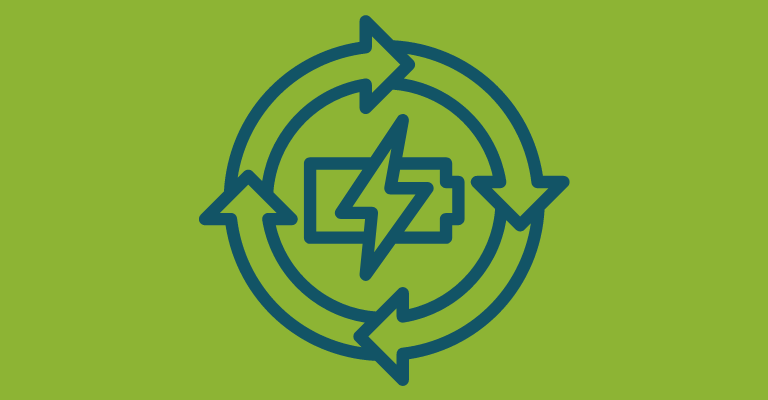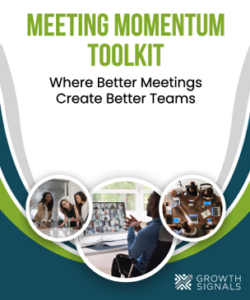Encouraging rest and recovery plays a crucial role in building workplace resilience and promoting employee performance.
Research shows that taking breaks not only improves focus and performance but also helps prevent decision fatigue.
Here’s the science behind taking breaks:
- Our brains move from full focus to mental fatigue every 20 minutes.
- Frequent breaks have been shown to improve focus, performance, and prevent decision fatigue.
- Quiet moments, coupled with inward reflection, positivity, and distance from your challenges can enable lasting insights. These insights or “a-ha” moments are critical to long-term organizational success.
The Connection Between Rest & Recovery and Resilience
In today’s fast-paced work environment, employees are expected to be constantly productive and available, often leading to burnout, fatigue, and decreased productivity.
When we’re overwhelmed, we need downtime to calm down mentally and emotionally. If we don’t have this time, the stress piles up and exhaustion and burnout happen.
Benefits of Rest & Recovery for Employee Wellbeing and Performance
Rest and recovery are key factors in employee wellbeing and performance. Here are some benefits of rest and recovery in the workplace:
Reduced Stress and Burnout
When employees are overworked and don’t have enough time to rest, they are more likely to experience burnout, leading to decreased productivity and engagement.
Encouraging employees to take microbreaks during the day, turn off work when they’re home, and use their vacation time can all help reduce stress and prevent burnout.
When employees are given time to rest and recharge, they are better equipped to handle stress, remain calm in challenging situations and bounce back from setbacks.
Improved Mental Health
Our brains use beta waves (those associated with stress) when we are performing mentally challenging tasks. If we continue with mentally challenging tasks throughout the day, beta waves build up.
When we rest and take breaks, beta waves get a break and different areas of the brain are used. In other words, taking time out prevents stress from building up in our brains.
When employees have time to rest and recharge, they are better equipped to handle stress and maintain a positive outlook.
Increased Creativity & Productivity
Have you ever noticed where and when you get your best ideas? Most of us get them when we’re relaxed – whether it’s driving, in the shower, or walking our dog.
Our brains are built to detect and respond to change. If there aren’t any changes, our brains gradually stop registering a sight, sound, or feeling. Therefore, it gets harder to focus.
Research in the journal, Cognition found that even a brief diversion from a task (aka a break) can dramatically improve a person’s ability to focus on that task for a prolonged period of time.
In addition to taking regular breaks, getting quality sleep is vital to performance. Good sleep helps us to think clearly, remember information, and make better decisions.
When we sleep, our brains integrate new information learned and associate it with the existing information that’s already stored. Sleep also helps us find creative solutions to our problems that we couldn’t think of during the day.
When we don’t get enough quality sleep, it impairs our “executive function”—a set of abilities we need to do well at work, and in all realms of daily life. It’s harder to pay attention, make logical decisions, and manage our emotions.
When well-rested, employees are able to maintain a higher level of focus and energy. This translates into greater productivity and creativity in their work.
Encouraging employees to take breaks and get quality sleep can lead to improved performance and better overall results.
Better Work-Life Balance
When employees have time to rest and recharge, they are better able to manage their workload and prioritize their personal lives. This can lead to increased job satisfaction and overall wellbeing.
Ways Organizations Can Encourage Rest & Recovery
Here are some ways an organization can encourage rest and recovery among employees.
Encourage Breaks
Organizations can encourage employees to take breaks throughout the day, allowing them to rest and recharge.
These breaks could be short, such as five or ten minutes every hour, or longer, such as a 30-minute lunch break. Even a two minute break can help!
Encouraging breaks allow employees to step away from their work and clear their minds. This can improve their productivity and creativity when they return to their tasks.
Offer Flexible Working Arrangements
Flexible working arrangements such as telecommuting or flextime can allow employees to better manage their workloads and balance their personal lives.
This can reduce stress and help employees feel more rested and refreshed.
Also, by allowing employees to work from home or set their own hours, organizations can help them avoid the fatigue that often comes with long commutes or rigid schedules.
Promote Healthy Lifestyle Choices
Encouraging healthy lifestyle choices such as regular exercise, healthy eating, and good sleep habits can help employees feel more rested and energized.
Organizations can support fitness breaks, walking meetings, or offer resources such as resilience training or meditation sessions to promote healthier habits.
Provide Adequate Time Off
Organizations should provide adequate time off for employees to rest and recharge.
This can include vacation time, sick days, personal days, or mental health days.
Providing ample time off can help employees feel valued and supported, which can positively impact their overall well-being and productivity.
Conclusion
Encouraging rest and recovery can have a significant impact on employee wellbeing, productivity, and creativity.
By allowing employees to take breaks, offering flexible working arrangements, promoting healthy lifestyle choices, and providing adequate time off, organizations can show their commitment to their employees’ overall wellbeing and help them avoid burnout.
It’s time for organizations to recognize the importance of rest and recovery in building a resilient workforce and prioritize their employees’ health and wellbeing.



